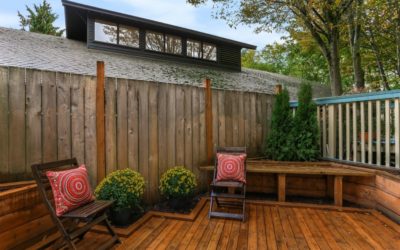Buying a home is a massive financial risk, no matter how prepared you might be. Purchasing a home comes with liability, increased cost of living, unexpected stress, and more time commitments; however, the rewards for buying a home are just as great. Real estate ownership is an opportunity to build wealth in many ways. So be sure to get started on the right foot for a more successful real estate adventure using these 5 basic financial tips below:
(1) PREPARE BEFORE PURCHASING
If you’ve been watching the market in your area, you’re bound to notice how quickly homes come and go. This can create an urgency to rush the process, jumping on a house before you’re truly ready to make the move. Preparation before purchasing real estate is simple, but requires patience.
Get your finances in order. This includes paying down outstanding debts, setting an accurate budget for daily living, and having a clear picture for what you can truly afford. Once you’ve done this, take the time to save for a larger down payment. Zero-payment down loans and small down payment loans are out there, but they come with many strings attached. There will always be opportunities to buy later, when you’re ready.
(2) MORE SQUARE FOOTAGE EQUALS HIGHER COST OF LIVING
Considering buying real estate to increase your living space? Besides the added cost to your monthly mortgage payment, plan for increases in these bills as well:
Homeowners Insurance
Heating and cooling costs
Larger heating and cooling unit maintenance
Water for home and lawn maintenance
Electricity
Larger appliance repairs
Property taxes
Home furnishings and renovations
(3) BUDGET FOR UNPLANNED REPAIRS
If a larger home is an uncomfortable increase in cost of living, then you might not be ready for what comes next – inevitable home repairs. Home repairs will be needed on a regular basis. The cost for these repairs will vary widely. But especially with a larger home, you will need to plan on high repair costs as cooling, watering, plumbing, electrical, roofing, etc. are all more extensive systems. While planning your finances for purchasing real estate, add into your budget a savings for home repairs.
(4) REGULARLY INSPECT MAJOR APPLIANCES
Set aside more room in your budget for regular inspections of major appliances like water softeners, water heaters, home heating and cooling units, and more. Regular inspections and preventative maintenance will save you money in the long term. When these major appliances go unattended and later break down, their repairs (or replacement) is a much higher fee to pay.
(5) BUILD EQUITY WITH LARGER MORTGAGE PAYMENTS
A 30-year fixed rate mortgage is standard practice for home buying. But just because everyone else is doing it, doesn’t make it the smartest route to take in purchasing real estate. Over 30 years, you’ll pay a lot more interest and build equity much slower. The ideal route for purchasing a new home is with a 15-year fixed rate mortgage (unless you have cash, then forget financing!). If that isn’t possible, making an additional mortgage payment at least once a year can help to dramatically lower the interest you pay on the overall loan.



